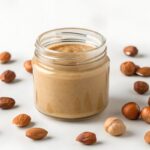Your digestive tract is home to over 400 types of microscopic bacteria. Experts believe these bacteria – when in the right environment – can use certain resources and nutrients to either inhibit the growth of or expel pathogenic bacteria that are the cause of digestive imbalances and disease.
Although our body produces its own ‘in-house bacteria’ we can also top them up by eating products that contain good bacteria or probiotics as there better known.
Medical research has shown that certain probiotic strains such as lactobacillus can have a beneficial effect in helping cut incidents of diarrhea. In particular, taking this strain of probiotic has helped people recover from diarrhea caused by taking antibiotics.
It’s important to point out that antibiotics are indiscriminate – meaning they kill both the bad and good bacteria.
The only way probiotics can benefit you is when they reach your intestinal tract and are then able to re-colonise with your existing bacteria. However, this is easier said than done.
It turns out that, manufactured probiotics that are found in yogurt are very fragile and sensitive to highly acidic environments such as the human stomach.
Pro supplement groups will argue that most if not all the probiotics contained in yogurt are killed off in the stomach and never reach the lower digestive tract.
Another important point is that probiotic bacteria must be alive if they’re to benefit you. The fact is, most commercial yogurts are pasteurised which is a high temperature process that kills bacteria.
However, yogurt companies are now beginning to add the probiotics after the yogurt has been pasteurised.
It’s also worth noting that ordinary yogurt does not contain probiotics and so is a waste of time when it comes to restoring balance to your digestive system.
Ordinary yogurt also has a lot of sugar which is unhealthy as it can encourage the growth of yeast infections such as Candida.
If you’re going to take yogurt then make sure it has live cultures. Many probiotic yogurts will have the term ‘Bio-active’ printed on the packaging to denote they contain live bacteria strains.
The other alternative to topping up your own good bacteria is to take probiotic supplements. When you search online or even visit your local health food or drug store you will find a multitude of different brands selling you probiotics.
The truth is, not all probiotic supplements are created equal. One claim made against supplements is that most of the bacteria they contain are dead by the time you buy them.
You see manufactured probiotics are also susceptible to heat. When they’re developed they need to be frozen or kept at low temperatures otherwise they perish.
There are claims that probiotic supplements are transported in unrefrigerated containers or displayed under hot lightning which can also affect the quality of the product.
Fortunately, probiotic strains are being developed that are less susceptible to heat.
As you can see there are both pros and cons to taking both of these options. The thing is, taking either supplements or yogurt has not harmed anyone’s health so you have little to lose by trying both and finding out which one works for you.






